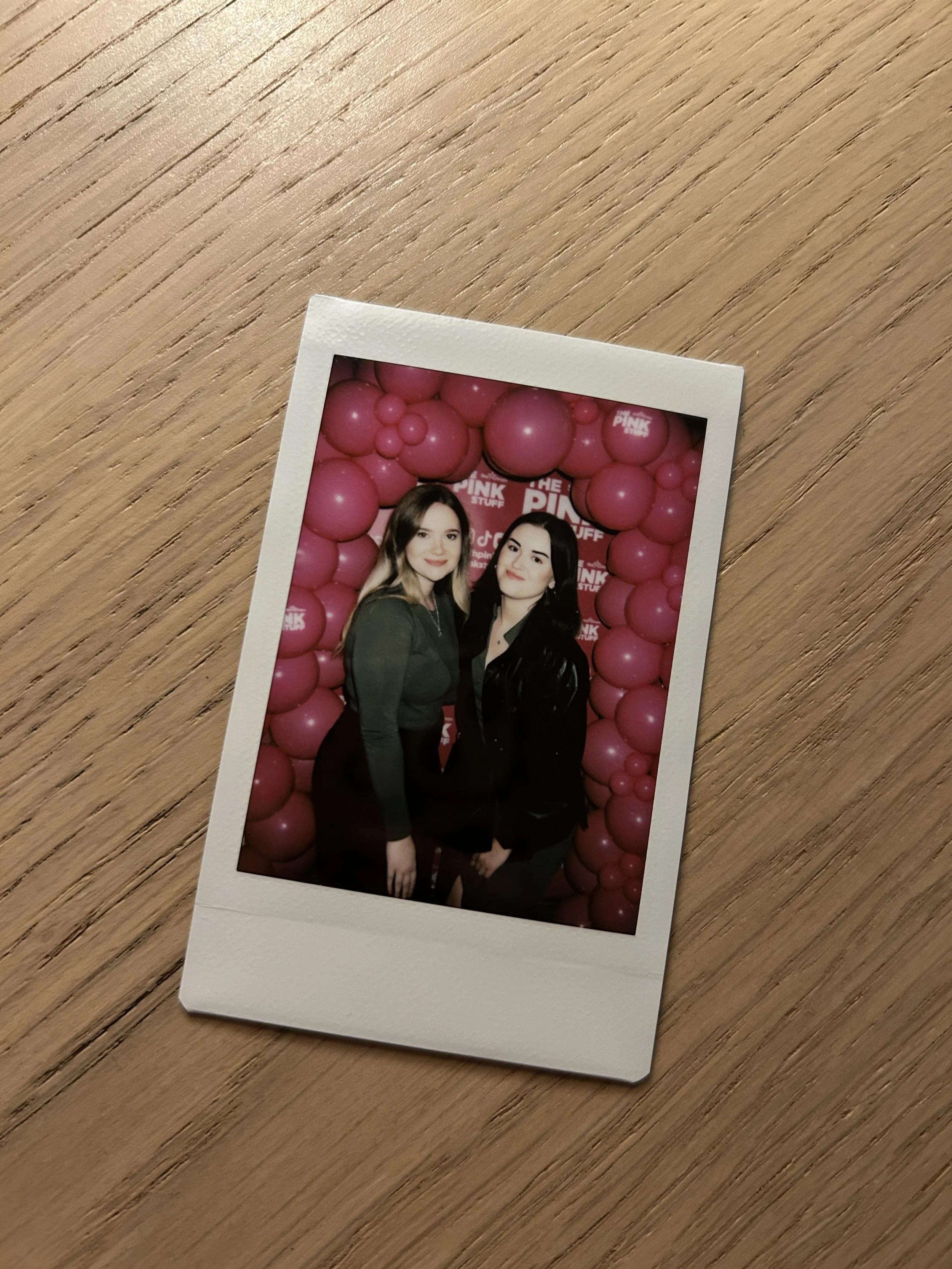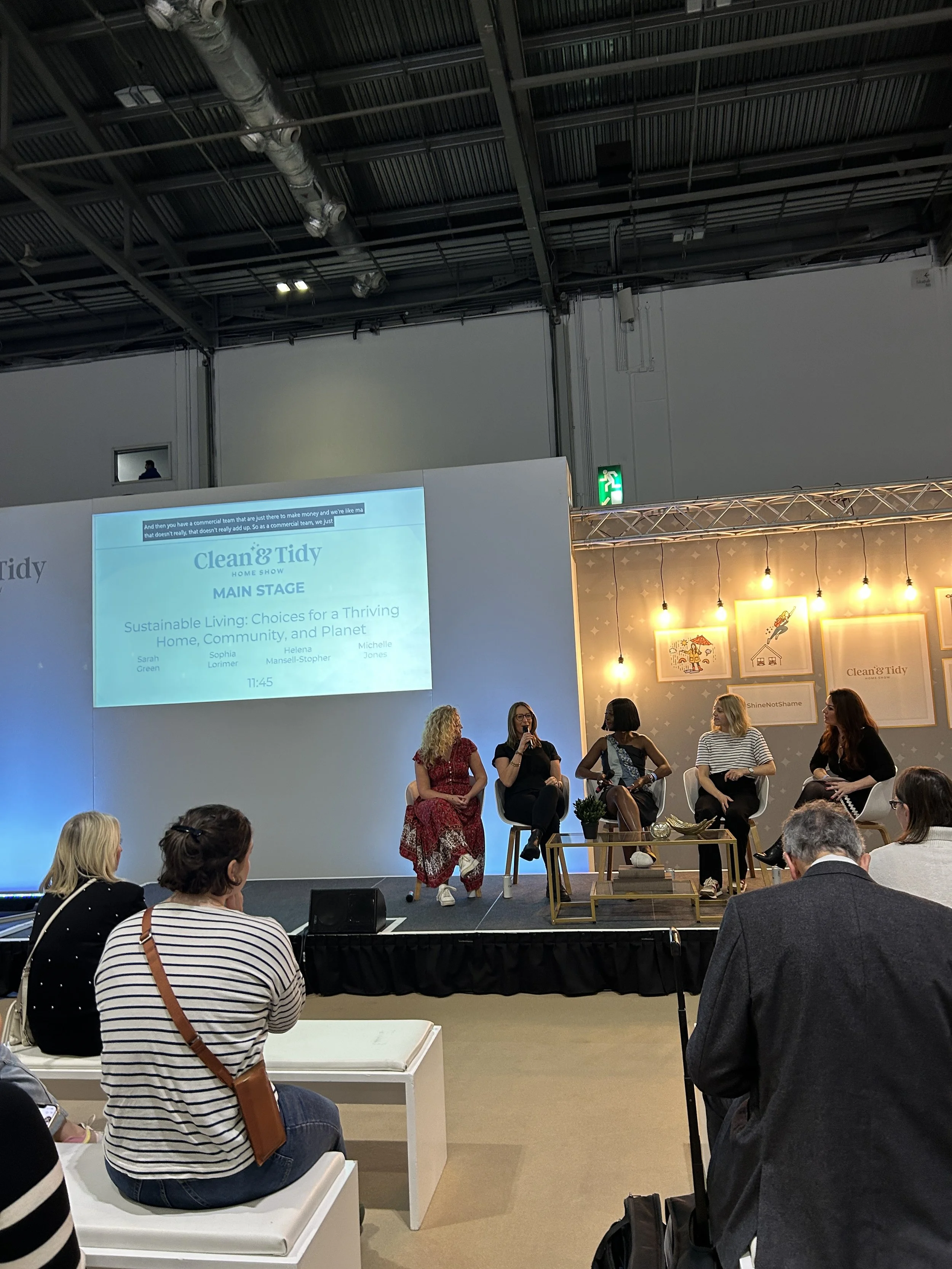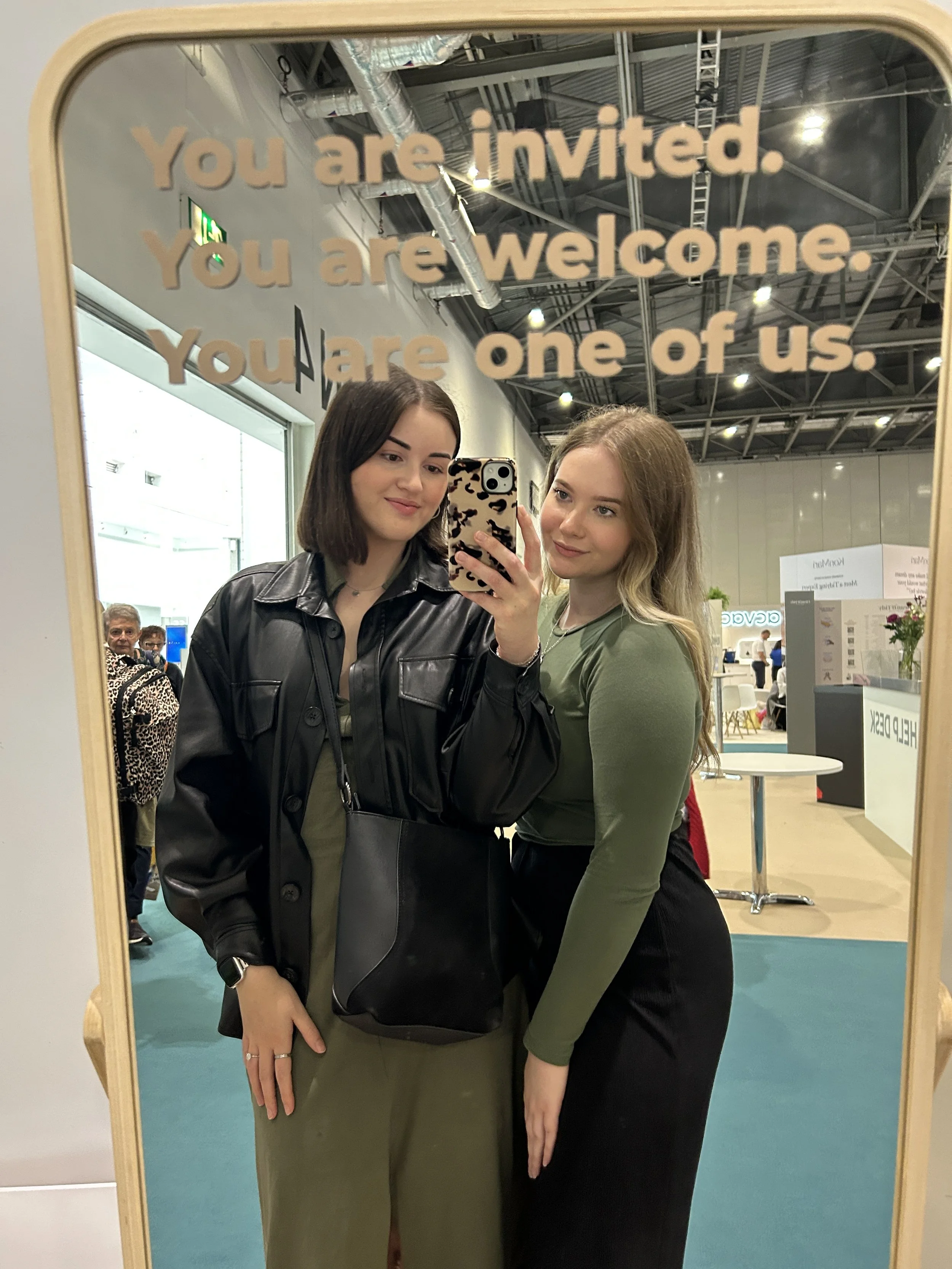The Clean and Tidy Home Show 2024
Last month, Lucy and I (Emily here!) took a big step for Inner Order by attending the Clean & Tidy Home Show at the Excel in London. As a brand new professional organising business, this was our very first event—so you can imagine the mix of excitement and nerves!
We came prepared to be total sponges, soaking up insights from anyone and everyone. As we’re just starting out on our journey in the world of professional organising, every conversation and tip felt like a valuable piece of the puzzle.
Our day was a whirlwind of walking from stage to stage, catching every talk we could, collecting some amazing freebies (who doesn’t love a good freebie?), and connecting with people across the industry—from Home Stagers to Hording Disorder UK.
We scribbled down tons of notes from all the brilliant speakers, and now we’re sharing those insights with you! So, if you're an aspiring professional organiser or just curious about what to expect at the Clean & Tidy Home Show, read on for our ‘revision notes’ from an inspiring day!
TALK 01 – The Organised Life: Tips for a more productive household
Speaker: Stephanie Rough from The Organised Zone
Nail your laundry system
Have a designated place for it.
Wash little and often.
Fold each item in piles or baskets to each individual person.
Have a donation section near laundry.
Establish a home command centre
Have a diary of where everyone can see plans and calendar – this visual allows everyone to be aware of everything going on.
Designate a colour to each family member.
Create daily routines
Give yourself a reward at the end of a task you don’t like doing.
The command centre won’t work unless you are able to clean it off and start a refresh.
Don’t put it down, put it away!!
If you do something every day it will start to become a habit you do automatically.
TALK 02 – Sustainable Living: Choices for a Thriving Home, Community, and Planet
Speakers: Sarah Green, Michelle Jones, Sophia Lorimer, Helena Mansell-Stopher
“When it comes to sustainability, we don’t need one person doing it perfectly, we need thousands of people doing it imperfectly.” (preach!!)
Products of Change is an organisation that helps businesses understand their environmental impact and improve sustainability.
Renting clothing pieces not only saves time and money, but you can wear higher quality items you wouldn’t usually splurge on.
The best thing you can do today is switch your utility provider to someone like Octopus energy and make simple swaps like a more sustainable toilet paper.
TALK 03 – Reset your home, Reset your life
Speaker: Hazel Burton from The Home Reset
To create an organised system, start with a clear vision and goals for the space. Identify current issues. Define the purpose of the space. Decide what items are stored, how they’re stored, and who needs access. Consider how often the space is used to improve accessibility.
Steps to Implement:
Create a simple plan.
Make quick, easy decisions first.
Set up zones for different items.
Prioritise visibility and accessibility, using vertical space where possible.
Ensure all identified problems are addressed.
If space is limited, rethink the location or consider decluttering.
Top tips for containing items:
Measure and research.
Is it for purpose?
Big toys big storage, small toys small storage.
Label to assist with maintaining.
Maintaining rules:
One in, one out.
Love it, or let it go.
Put back, not down.
Key for an organised home:
Having a place for everything.
Returning everything to its place.
TALK 04 – Decluttering and organising for the neurospicy
Speaker: Heather Tingle from Untangled By Tingle
The go basket
If something is in a drawer you will forgot everything exists and becomes very unmanageable.
You want to be very specific on the items you put in there.
Emotions, not logic
Use emotions to let items go and whether you will actually use it.
Emotions first and logic secondary.
Stop trying to have a NT home
Find things that work for you not every everything else.
Have a space for where you use things instead of what you think an item should be.
Stop trying to be someone you aren’t and work with your brain, not against it.
Remove the overwhelm there
Use timers.
Use the word ‘just’ to help you pin point what you need to do - find one thing and start there not focusing on a whole room.
Create external motivation
Do something that makes you feel good to start with.
Create deadlines e.g. invite someone over in 2 hours time, you can get things done.
If you need to go to the charity shop to donate items, you are then creating a time and deadline for you to pinpoint your focus and take the pressure off.
TALK 05 – Pricing Bootcamp
Speaker: Lia Loewenthal from Get Comfy With Money
5 Pricing Power Moves:
Mindset magic: own your worth and feel confident in what you do. If you don’t believe in it, how can your customers. Our mindset is a really powerful tool. Figure out your need numbers vs your want numbers. Your USP is that no can do it quite like you can.
Know your numbers: data doesn’t lie, be honest with your pricing. What do we need for personal finances and what do we need for our business finance.
Dream big with your wants: what do you want to make? Think bold and big so we have goals to work towards. What do you want your business and personal income to be? Align your pricing with what you actually want for your life.
Pick your pricing path: hourly pricing or project based pricing.
Use the sweet spot calculator and practice saying how much you charge and earn.
TALK 06 – Decluttering and organising for the people you want to help
Speaker: Katherine Blackler from SortMySpace Ltd
This talk is valuable for organisers but also to anyone wanting to help loved ones declutter and get organised.
Decluttering tools:
A vision - how do they want it to function, how they want to feel when they are in a space.
A camera - take before and after photos.
Various receptacles - any type of containers of different sizes should match what you are trying to sort.
Boxes / bags - help you organise with creating sections for keep, sell, throw and donate.
Energy and focus - stay hydrated and fed, keep distractions at bay.
When working with people ask these questions:
Have you used or worn this in the last 6 months?
Will you use or wear this in the next 6 months?
Would you buy this item now?
Do you need to own this yourself?
If you kept the item, can you lend it to others?
Will technology have been superseded? Is it a phase?
Where would you find this if you did need it?
Can you afford to re-buy it?
Storage principles:
Store like-with-like (categories).
Create zones for activities or collections.
Consider a ‘shop’ for bulk buys.
Maintenance Strategies:
Set finite amount of space for categories of items.
Apply the 1-in-1 out rule for future acquisitions.
Ask for gift experiences (not stuff).
Periodically review belongs for relevance.
TIPS:
If someone is holding onto memorabilia taking photos and creating a coffee book is a great way to hold that memory but get rid of the bulk
Olio is a good waste and house hold product app - someone comes to local area or door to come and collect items
We can’t wait to book our tickets for next years show!
Hopefully we can chat and get to know even more of you wonderful people.
Emily x



